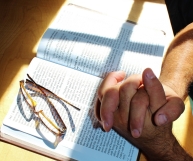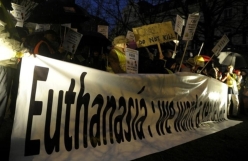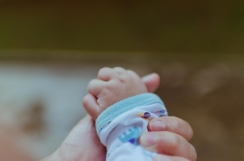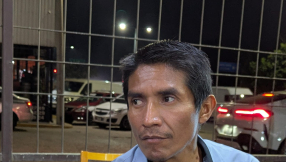Despite Church teachings on how God alone can give and take human life, more and more sick people are choosing to die in Belgium, a recent study revealed.
A research recently published on the Journal of the Canadian Medical Association showed that the number of euthanasia deaths in Belgium increased from 235 in 2003 to 1,807 in 2013—an almost tenfold increase in 10 years.
The study attributed the increase in euthanasia deaths to the legalisation of mercy-killing in the European nation in 2002. At present, terminally ill patients of all ages in Belgium can decide whether they want to live or die.
The research also noted an increase in the number of euthanasia deaths among patients with more "controversial" illnesses, such as neuropsychiatric conditions. These cases, however, remain to be a "small minority" in all the 8,752 reported cases of euthanasia during the research period.
The study nevertheless admitted that its scope may be limited, since it did not cover unreported cases of euthanasia, which it said are dealt with "less carefully" in Belgium.
It added that because of its research methodology, the details on the circumstances surrounding the euthanasia deaths included in the research are limited.
"In addition, this study was based on an analysis of secondary data collected as part of the mandatory notification procedure. Details about the patients' clinical circumstances and the precise nature of the suffering that caused them to seek euthanasia were not recorded in the database," the research stated.
Alex Schadenbarg, executive director of the Euthanasia Prevention Center, for his part called for deeper and more detailed research on mercy-killing, to further understand why patients are choosing death over life.
"We already know that there has been a continuously expanding number of deaths and reasons for euthanasia. We need to know how certain groups, such as people with dementia and other people who are incapable of requesting euthanasia are treated and we need to know if they have become vulnerable in a culture that believes that some lives are not worth living," Schadenberg said in an opinion piece in Life Site News.


















